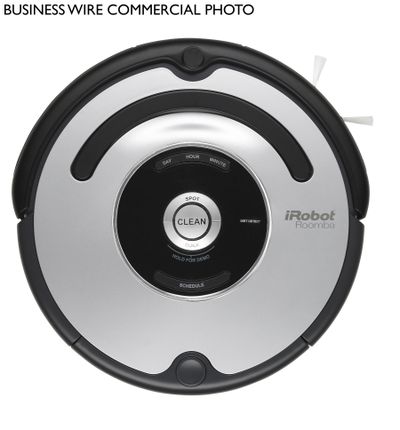Motley Fool: Don’t count out iRobot’s potential for swift recovery

If you’re in the market for a stock that could grow significantly over time, consider iRobot (Nasdaq: IRBT).
You may know the company for its floor-vacuuming robot, the Roomba, but it also serves the military, with machines such as the iRobot 510 PackBot, which performs route clearance and checkpoint inspections and disarms explosive devices in war zones. Its Warrior and PackBot builds were instrumental in removing radioactive debris from Japan’s Fukushima Daiichi nuclear facility.
The stock has fallen more than 20 percent this year, though, as investors worry that government spending cuts will hurt iRobot’s profitability. In 2011, defense contracts accounted for 36 percent of total revenue.
But don’t count this ’bot out just yet. Home robots accounted for 60 percent of the company’s revenue last year. Sales of iRobot’s consumer products including the Scooba, a floor-washing robot, have helped offset losses in government funding. International sales are brisk, too, with a whopping 70 percent of the company’s home-cleaning solutions sold abroad.
Meanwhile, iRobot is diversifying its product offerings outside the home and military markets, targeting the health care and retail industries with a new mobile robotics platform.
Innovation is in iRobot’s DNA. Investors may be surprised by how quickly iRobot turns a setback into an opportunity. (The “Motley Fool Rule Breakers” newsletter has recommended iRobot.)
Ask the Fool
Q: What are “tech stocks”? – C.S., Pensacola, Fla.
A: The term generally refers to computer-related companies, but these days, many other companies employ a heck of a lot of technology, too.
Consider financial companies. More than 20 billion credit card transactions are processed annually, with computers. Banks process the bills we pay online, making sure accounts are debited and credited correctly.
Airplanes are big metal-and-plastic heaps of technology, designed and built using a lot of it. Technology is also critical to the airline industry, which needs it for logistic coordination, keeping flight schedules organized and dealing with weather issues.
Retailers use technology in their operations, from inventory control to restocking inventory and processing payments. Oil companies use technology as they search for new reserves. Even the Steinway piano company uses computerized, laser-guided, diamond-tipped cutting machines to cut wood.
Don’t get overly excited at the thought of “tech stocks,” thinking they’ll be fast growers. The tech-heavy airline industry, for example, has shrunk the wealth of many investors. The term “tech stocks” isn’t too meaningful these days. It’s best to simply evaluate each company and industry on its own merits.
My dumbest investment
My worst investment had to be Webvan. I got in on the IPO and thought it would rocket – but it ultimately crashed as a concept and as a company. – G.S., San Diego
The Fool responds: You’re not the only one who lost money on Webvan. Many investors, like its own management, were overly confident that Americans would, in droves, abandon conventional supermarket shopping in order to buy groceries online. As with many initial public offerings (IPOs), investors rushed in without giving the newly public company time to establish itself as a reliable performer.
Today, IPOs still draw a lot of interest and money, even when the underlying company has some serious concerns. Newly public Groupon, for example, seems overvalued, at close to $8 billion in market capitalization. Its business requires a lot of employees to contact businesses and arrange deals, and its customers have little reason to be loyal to Groupon over competitors also offering attractive deals.
Meanwhile, the company has restated its numbers several times, has had its accounting questioned and has gone through two chief financial officers in short order.